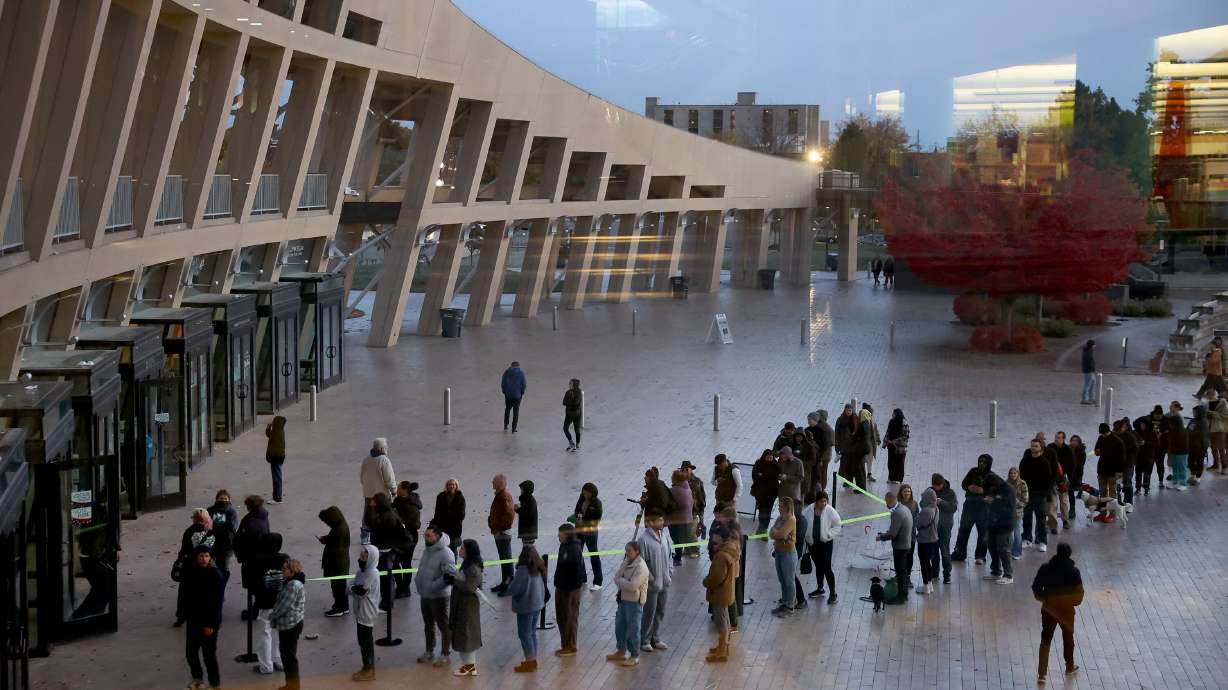Estimated read time: 4-5 minutes
- Utah's signature petition process is facing scrutiny due to alleged forgery incidents.
- Gathering Inc. workers were recently charged with forgery, but the state audits all signatures thoroughly.
- A new bill aims to improve transparency and accuracy in Utah's election processes.
SALT LAKE CITY — Utah sets a uniquely high bar for candidates to meet ballot requirements in primary elections. Federal and state candidates spend thousands of dollars and take months to get signatures to get on the ballot.
Filing requirements for 2024 candidates:
- Statewide offices (ex. governor or U.S. Senate) — 28,000 signatures
- U.S. representative — 7,000 signatures
- Utah state senator — 2,000 signatures
- Utah state representative — 1,000 signatures
Despite making a career in collecting candidates' signatures, Tanner Leatham, owner of Gathering Inc., a Utah-based signature-gathering company that provides services in more than 25 states, said state leaders need to make it easier to get on the ballot.
"There are so many seats already, right now, that run uncontested year after year after year because it's already really hard to get on the ballot," Leatham told the Deseret News. "You know, we catch a handful of people doing fraudulent things ... (but) the system is good. It's good at catching those people, but if we try and make it any harder, then we're going to have less people running for office. It's going to cost more money."
Despite the difficulty, "The state's current laws and system is very thorough. They look at every single signature. Hundreds of thousands of signatures were turned in this last cycle amongst the whole state," he added.
Leatham said that last March, his company had an inclination that a handful of the 300 to 400 independent contracted workers were not following the legal process. One way this occurred was by allowing people to sign for family members.
"It's difficult," Leatham said. "We require a lot of signatures for big and small offices, and it's in the middle of the winter, it's dark outside, and so finding people who are willing to help us with that kind of work is difficult ... (and) no one wants you to knock on their door."
But that doesn't excuse breaking the law.
He said it wasn't until a few months later that Utah's attorney general's office reached out and said individuals employed by Gathering Inc. were identified and under investigation for alleged forgery.
On Monday, the Utah Attorney General's office filed charges against 11 defendants — several of whom served as independent contractors for Gathering Inc. — across multiple state counties with forgery-related charges concerning candidate petitions.
These independent contract workers were given strict guidelines and informed that all signatures gathered would be sent to the state for audit where "every single signature gets looked at and compared against five to 10 other signatures the state has on file," Leatham said.

Once the county clerk administers the audit, it is sent to the lieutenant governor's office for additional processing.
"The role of the Office of Utah State Auditor is to identify and investigate statutory compliance and refer related findings to the Attorney General's Office for examination when criminal activity is involved," Utah State Auditor Tina M. Cannon said in a statement on Tuesday.
In a combined effort with the lieutenant governor's office reviewing signatures gathered during the 2024 election cycle and "following the proper referral process, on Dec. 19, 2024, the findings of this joint effort were turned over to the attorney general's office for their review."
How is voter trust ensured?
In January, the state auditor's office sent a letter to Lt. Gov. Deidre Henderson voicing concerns with Utah's signature petition verification process. The main concerns highlighted were "the rigid protection over voter names and signatures for observing petition information and signature verification versus the rather broad disclosure of information allowed by statute for voter registration data."
Two bills — HB374 and SB164 — regarding election law processes were introduced during the 2025 legislative session, but only SB164, "Modifications to Election Law," was passed.
The bill, sponsored by Senate President Pro Tempore Wayne A. Harper, R-Taylorsville, passed unanimously in both the Senate and House. During the House Government Operations Committee, Harper said the bill was a direct response to the recommendations made by legislative auditors last year. In October, the audit found mistakes in a small percentage of signature verifications submitted by Gov. Spencer Cox, Rep. John Curtis and then-Attorney General candidate Derek Brown.
The Deseret News previously shared the recommended safeguards the legislative audit recommended. They include clarifying the standards that are in place to validate signatures, making common error-based training required, and notifying voters when their signatures have apparently been used in a petition nomination packet and giving them the chance to remove it if it wasn't them who signed.
Harper's bill does the following:
- Ensure that ballots are stamped in a timely manner by having constant communication with county clerks and local post offices.
- Create a process to allow voters to observe the process of candidate petition verifications — a process that is already used for counting ballots.
- Allow the candidate to view nomination packets without redactions.
- Require routine audits of the signatures and ensure that at least 1% of all signatures turned in are audited.
The bill also allows candidates to submit up to 10% more votes "to make sure that there's no question that sufficient signatures have been turned in," Harper said. "What I'm trying to do here is just make this process cleaner and more open."









